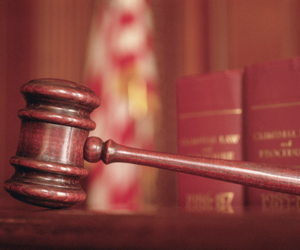 Nov. 10, 2011 – In Wisconsin, the “forfeiture rule” prevents parties from raising new legal arguments on appeal that were not raised at the circuit court level. Application of the rule is no different for self-represented (pro se) litigants, a state appeals court recently explained.
Nov. 10, 2011 – In Wisconsin, the “forfeiture rule” prevents parties from raising new legal arguments on appeal that were not raised at the circuit court level. Application of the rule is no different for self-represented (pro se) litigants, a state appeals court recently explained.
Jennifer and Thomas Massey appealed a guardianship order issued by the Dunn County Circuit Court. The order appointed Rebecca Townsend, Jennifer’s sister, permanent guardian over their mother (Willa), who suffered from a degenerative brain disorder.
The order also gave Townsend the ongoing power to control and supervise the Masseys’ contact and communication with Willa. Willa’s guardian ad litem had made the recommendation, citing some evidence that the Masseys caused Willa great anxiety and stress.
The Masseys, who appeared pro se at the circuit court level but failed to make various legal arguments, appealed. Despite the forfeiture rule, they argued that their new arguments were not forfeited since related to “issues” raised at the circuit court level.
In Townsend v. Massey, 2010AP3159 (Nov. 10, 2011), the District III Wisconsin Court of Appeals disagreed, explaining that one does not preserve legal arguments for appeal by simply raising a related issue at the circuit court level.
For instance, the Masseys argued on appeal that the circuit court lacked competency to proceed because Willa was not present at the hearing. In circuit court, the Masseys suggested Willa should be present but did not make a legal argument that the court lacked competency under a Wisconsin statute giving her a right to be present.
To assert their argument on appeal, the Masseys cited a footnote in Goudy v. Yamaha Motor Corp., 2010 WI App 55, 324 Wis. 2d 441, 782 N.W.2d 114, which states, “Although we will not generally review an issue raised for the first time on appeal, … we will permit a new argument to be raised on an issue which was raised below.”
However, the appeals court clarified that appellate courts have “discretion” to hear new arguments not raised in circuit court, but are not required to do so.
“Nothing prevents a party from making an argument for the first time on appeal and, as the [Goudy] statement implies, nothing prohibits an appellate court from addressing a new argument,” wrote Judge Paul Lundsten.
The appeals court ruled the Masseys forfeited their arguments and rejected any assertion that the forfeiture rule should be ignored although the Masseys represented themselves, stating, “Generally, pro se litigants are bound to the same procedural law as attorneys. The Masseys have not explained why this general rule should not apply here.”
